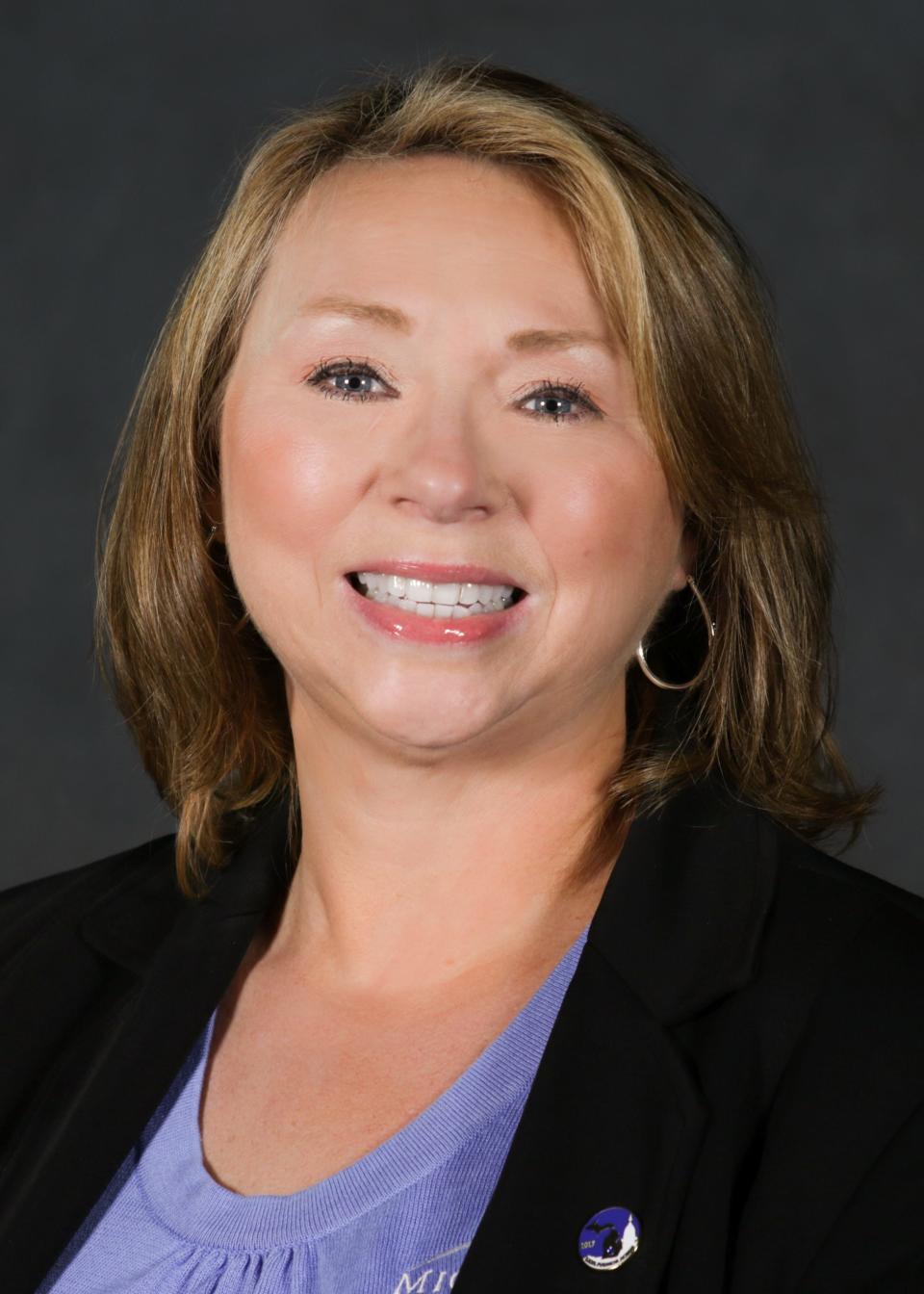17 questions could help protect Michigan credit union members from fraud
As our parents and loved ones age, we find ourselves increasingly worried about every possible troublesome fall ranging from one day slipping in the bathroom to getting tripped up by the next financial scam that drains them of every dollar.
Just as we need to remove throw rugs that can be a hazard in the home, we must, unfortunately, carefully consider if a loved one is increasingly at risk of losing a large share of their life savings to financial predators.
Michigan's Financial Exploitation Prevention Act, which took effect last September, requires banks and credit unions to train employees and put procedures in place to spot signs of financial exploitation.
The goal is to make Michigan's financial institutions better equipped to identify and report financial exploitation of older consumers and vulnerable adults.
Financial institutions also have more room to freeze customer transactions or assets under certain circumstances if fraud is suspected.
One credit union asks questions about financial vulnerability
The Michigan Legacy Credit Union — which has branches in Wyandotte, Warren, Pontiac, Highland and Flat Rock — is now partnering with Wayne State University’s Institute of Gerontology to offer a survey to customers that can help prevent financial abuse.
The survey, which is voluntary, can help give a baseline of someone's vulnerability and then alert employees at the Wyandotte-based credit union, which has 23,000 members, to be on the lookout for potential issues. Many members worked in municipal and health services fields.

Michigan Legacy Credit Union President and CEO Carma Peters told me in a phone interview that financial schemes escalated during the pandemic — including so-called love interests met online who consistently need money, scammers pretending to be grandchildren in trouble and yes, caregivers who take financial advantage of elderly people.
One grandmother almost lost $60,000
One older credit union member was convinced after scammers reached out to her that she needed to send tens of thousands of dollars to help a grandson who was in trouble in Turkey.
"She panicked," Peters said. "Of course, they're going to play on 'You've got to do this immediately to get him out of trouble.'
"So she was going to do that just to get her grandson out of trouble."
But thankfully, she didn't send the $60,000 that was demanded by con artists. The credit union employees suggested that she talk to a relative first to make sure that the grandson was really in trouble.
After that phone call, the customer learned that the grandson wasn't even out of the country.
"People get taken advantage of for all of their retirement savings," Peters said.
It's not unusual, she said, for victims to lose $80,000 to well over $200,000 in some financial exploitation cases.
She noted that there are so many attempts to con consumers out of their money that it's almost impossible to keep up with it these days.
"It's very sad," Peters said.
More: Odd scam offers free food or deep discounts where someone else pays the bill
More: Survey scams offer free items, hide behind big names: The No. 1 red flag
More: Scammers pretend there's a problem with your Social Security benefits, number
An emotional loss of a spouse, early onset dementia or another medical issue can all trigger changes in the way someone reacts to carefully crafted efforts to manipulate them to hand over their money.
Maybe you're seeking companionship because you're lonely and you're more vulnerable to a romance scam.
Maybe you don't feel like you're on a good financial footing and you're more vulnerable when someone suggests that they can help you make money on Bitcoin.
In some cases, Peters said, caregivers will attempt to manipulate a senior into buying them a car because they claim they need one. But the senior ends up losing that money and doesn't benefit.
She noted that banks and credit unions now are looking out for abnormal transactions, as well as changes in behavior of customers. Is a normally happy customer suddenly nervous or depressed? Did the customer recently lose a spouse — and now is withdrawing large sums of cash?
It's also important to talk about such issues with loved one and exchange information about potential scams.
Peters noted that older adults who read information about financial exploitation and scams are more likely to identify signs and avoid becoming victims.
Anyone can be vulnerable
Peter A. Lichtenberg, director of the Institute of Gerontology at Wayne State University in Detroit, told me that adults don't have to be well into their retirement years to end up being financially vulnerable.
"Older adults are not scammed more often than other people are," Lichtenberg told me. "Unfortunately, they lose more money."
Lichtenberg, who has spent nearly two decades researching financial vulnerability, said the main goal of the survey is to prevent financial exploitation.
"We look at it as a risk scale," he said.
The 17-question survey asks things such as: How often do you worry about financial decisions that you recently made? Have you noticed any money taken from your bank account without your permission? How often do your monthly expenses exceed your regular monthly income?
How often do you talk with or visit others on a regular basis? Has a relationship with a family member or friend become strained due to finances as you have gotten older?
Often, Lichtenberg said, people view financial decisions as purely an intellectual activity but ignore the emotional and psychological triggers.
One's financial health, he noted, is part of one's overall health as people age. Not having enough money — or constantly worrying about money — can contribute to a lower quality of life and even a shorter lifespan.
If someone is fearful of not having enough money or their relationships are strained, they could be more vulnerable to exploitation. Someone who lacks confidence about their financial decisions could become a victim of fraud.
Cognitive decline and psychological vulnerability can make older adults more susceptible to scams and identity theft.
"First, don't answer the phone if you don't recognize the number," Lichtenberg advises.
Reach out to a trusted friend if you think a pitch doesn't sound right and talk things over first before handing over any money. Don't let anyone rush you into anything. If you're anxious about a decision, step back and take a little more time to do more research.
Someone who is facing anxiety or loneliness might want to turn to someone they trust to discuss financial pressures. The answer may be to seek help for anxiety or depression from a mental health professional.
Many times, experts say, those who have lost money to scams or financial predators don't admit it to others. But it can help to report situations to the police and alert others in your community to be aware of potential warning signs.
Lichtenberg’s website OlderAdultNestEgg.com offers help for older adults, professionals and friends and family. The financial vulnerability survey is also at that website and can be used by people who would like to find out their risk level.
The Institute of Gerontology has a SAFE program — Successful Aging thru Financial Empowerment — which offers counseling at no cost to help repair the damage of financial scams. Among other things, SAFE can help recover money, file police reports and freeze credit reports. The OlderAdultNestEgg site has information about SAFE.

Peters and Lichtenberg will discuss the pilot project with other credit unions in the future, including on June 10 at the Michigan Credit Union League & Affiliates' Annual Convention and Expo at the Renaissance Center in Detroit.
Michigan Legacy Credit Union created a campaign during April’s Financial Literacy Month to encourage existing members to take the Financial Vulnerability Survey and have their scores uploaded to the credit union’s database.
New members of the credit union age 50 and up are automatically offered the Financial Vulnerability Survey. Dozens have taken it thus far. Their scores are included in a database to help monitor these members’ accounts for abnormal financial activity.
“Ideally, this pilot program will be utilized throughout the state of Michigan, and nationally, to help combat this epidemic and provide another tool to protect older adults from financial fraud,” Peters said.
Anonymous data from the project will be analyzed by Lichtenberg and his team to expand research insights into vulnerability and safeguards for older adults.
How to protect yourself
One piece of advice: If possible, consider ways to monitor a loved one's financial statements. Big numbers aren't always a sign. Some scammers start out small, maybe a caregiver who uses a debit card to cover their own expenses, such as gas or groceries.
Many advisers, including Lichtenberg, see value in having someone named as a trusted contact on an account. A bank, credit union or brokerage is able to contact that person to verify if a situation is legitimate.
A trusted contact could be an adult child, a friend, an attorney or some else that the financial institution can contact for extra help in emergency situations. The consumer can remove a trusted contact or switch contacts, if necessary.
Lichtenberg said finances are often a taboo topic for discussion, yet people are hungry for information about their own financial vulnerability level.
Consumers also can contact the Michigan Department of Insurance and Financial Services, even anonymously, by calling 877-999-6442 or by going online to Michigan.gov/ReportFraud2DIFS if they suspect fraud by an individual, financial services business or insurance industry.
Contact Susan Tompor via stompor@freepress.com. Follow her on Twitter @tompor. To subscribe, please go to freep.com/specialoffer. Read more on business and sign up for our business newsletter.
This article originally appeared on Detroit Free Press: Michigan Legacy Credit Union, Wayne State survey helps stop fraud

